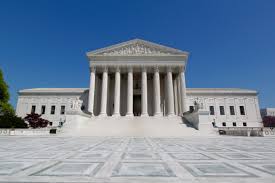Over the weekend, outspoken U.S. Supreme Court Justice Antonin Scalia, who advanced conservative positions from gun control to campaign contributions, passed away at the age of 79. In President Obama’s last year of office, Obama has the opportunity to appoint yet another Supreme Court justice, the third of his term. During an era in which the average justice serves for almost 30 years, Obama’s decision will be felt for decades to come.
While Obama plans to appoint another justice before his time in office is up, Senate Republicans have vowed to block any nominee the president will bring for their approval. Obviously, Obama and Republicans disagree on pretty much everything, but this issue is especially important because the Supreme Court will soon hear cases on some very important issues such as immigration, abortion and gun laws. In an era of 5-4 decisions on so many important topics, Scalia’s replacement will help shape the course of our country.
Scalia’s passing should beg us to ask an important question: Why should one person’s untimely (or timely, depending on your political viewpoint) death have such a big impact on our country?
It would be the right move to limit the Supreme Court’s sway over America. I’ve spoken with friends (who, generally speaking, are more liberal than I) about the need to reduce the essentially unlimited power of the Supreme Court. I’m often met with the response, “Why?” For liberals, the Supreme Court has provided a number of victories in the last several decades: The right to abortion (Roe v. Wade), same-sex marriage (Obergefell v. Hodges) and the use of affirmative action in college admissions (Regents of the University of California v. Bakke).
At the same time, it’s important to note that conservative majorities on the court have also had a big impact on our country. In District of Columbia v. Heller, the Supreme Court ruled that citizens have the right to possess firearms in their homes for self-defense, and Citizens United v. FEC allowed corporations to spend unlimited amounts on campaigns and brought the rise of super PACs. We also can’t forget Bush v. Gore, in which the Supreme Court upheld George W. Bush’s controversial victory without a full recount.
It should be important to note that in five of the six cases I’ve mentioned, the decision by the Supreme Court was decided by one vote.
Let that sink in.
One person, either a conservative or liberal, has been the deciding vote between two very different futures for our country, even possibly who held the presidency.
Doesn’t the difference of just one unelected official’s vote cheapen the idea of democracy?
I can pretty much bet that you have absolutely no idea who the deciding votes were in each of these cases. And why would you? You’ve never voted for these nine people. In fact, most of them were appointed by presidents elected before you were born and will serve 20 to 25 years without your approval. You likely can’t name half of them, let alone all nine. So why should they make so many important decisions, without anyone being able to overrule them?
I would hope that any reasonable person could see how insane the idea of judicial supremacy (the Supreme Court’s final say on a law’s constitutional status) truly is. The Supreme Court is no less beholden to the conservative and liberal viewpoints that the rest of our society is and is beholden to different viewpoints, just as we all are. How else could the brightest legal minds, reading the same Constitution and precedent, reach such different conclusions on important issues?
Scalia’s death should ignite an important debate on how to limit the power of a completely unaccountable Supreme Court. Should justices have term limits? Should Congress be able to override contested rulings? It’s time to challenge the blatantly undemocratic nature of the Supreme Court, which has held far too much power over our country for far too long.
Sam Wallace is a senior government and politics major. He can be reached at swallacedbk@gmail.com.



